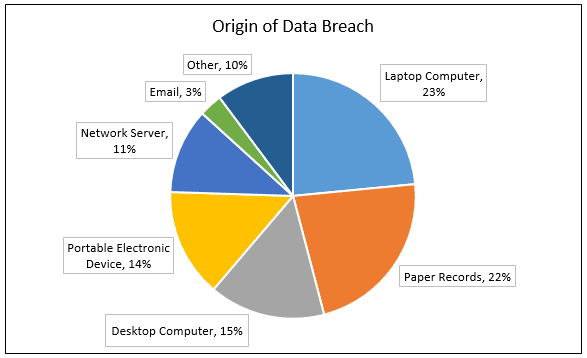Breaches Meaning

What does breach mean? Breach is defined by the lexicographers at Oxford Dictionaries as An act of breaking or failing to observe a law, agreement, or code of.
Synonyms: breach, infraction, violation, transgression, trespass, infringementThese nouns denote an act or instance of breaking a law or regulation or of failing to fulfill a duty, obligation, or promise. Breach and infraction are the least specific; when applied to lawbreaking they may imply a relatively minor offense, but they are also widely used in nonlegal contexts: Revealing the secret would be a breach of trust. Their behavior amounted to an infraction of the unwritten social code. Violation generally applies to the breaking of an explicit law or rule ( a traffic violation; a violation of international law); it can also imply a failing to follow a moral or ethical standard: a violation of human rights; a violation of one's privacy. Transgression and trespass most often apply to divine or moral law: 'She had said that the transgression was all the more shocking because the official was charged with enforcing federal laws against sexual harassment' (Jane Mayer and Jill Abramson). 'The act of torture is such an extreme trespass against the laws of war that it may seem beside the point to wonder whether any other forms of wrongdoing have been carried out' (Elaine Scarry).Infringement is most frequently used to denote encroachment on another's rights: 'Necessity is the plea for every infringement of human freedom' (William Pitt the Younger). Breach ( briːtʃ).
Syn:, all denote an act of breaking or disregarding a legal or moral code. Is most often used of a legal offense, but it may refer to the breaking of any code of conduct: breach of contract; breach of etiquette. Minebuilder game. Most often refers to the breaking of clearly formulated rules or laws: an infraction of regulations. Nintendogs cheats deutsch. Often suggests a willful, forceful refusal to obey: done in violation of instructions. Breach - The leap of a whale out of the water or the breaking of waves over a vessel or onto a coast; it is also the act of breaking. See also related terms for.
Also found in: Dictionary, Thesaurus, Legal, Financial, Acronyms, Idioms, Encyclopedia, Wikipedia.
breach
ForensicsAn infraction or violation of the law, which is either intentional (an act of commission) or unintentional (an omission).
Informatics
See security breach
Medspeak-UK
noun A term used in the context of time-dependent health care targets in the UK, in which a particular type of patient interaction with NHS health providers did not occur in the desired time frame. In A&E (casualty), patients must be seen within 4 hours, regardless of their level of acuity; any longer than 4 hours is regarded as a breach. For cancer targets, a patient is said to have breached when he/she has not been seen by an oncologist within 31 days of an urgent GP referral, or if definitive cancer therapy has not begun or at least been offered to the patient within 62 days of an urgent GP referral.
verb To have not begun definitive therapy for cancer within 62 days (as required by government cancer targets).
negligence
Medical malpractice The failure or alleged failure on the part of a physician or other health care provider to exercise ordinary, reasonable, usual, or expected care, prudence, or skill–that would usually and customarily be exercised by other reputable physicians treating similar Pts–in performing a legally recognized duty, resulting in forseeable harm, injury or loss to another; negligence may be an act of omission–ie, unintentional, or commission–ie, intentional, characterized by inattention, recklessness, inadvertence, thoughtlessness, or wantonness. See Adverse event, Comparative negligence, Contributory negligence, Gross negligence, Malpractice, Wanton negligence, Willful negligence. Cf Recklessness.Want to thank TFD for its existence? Tell a friend about us, add a link to this page, or visit the webmaster's page for free fun content.
Link to this page: